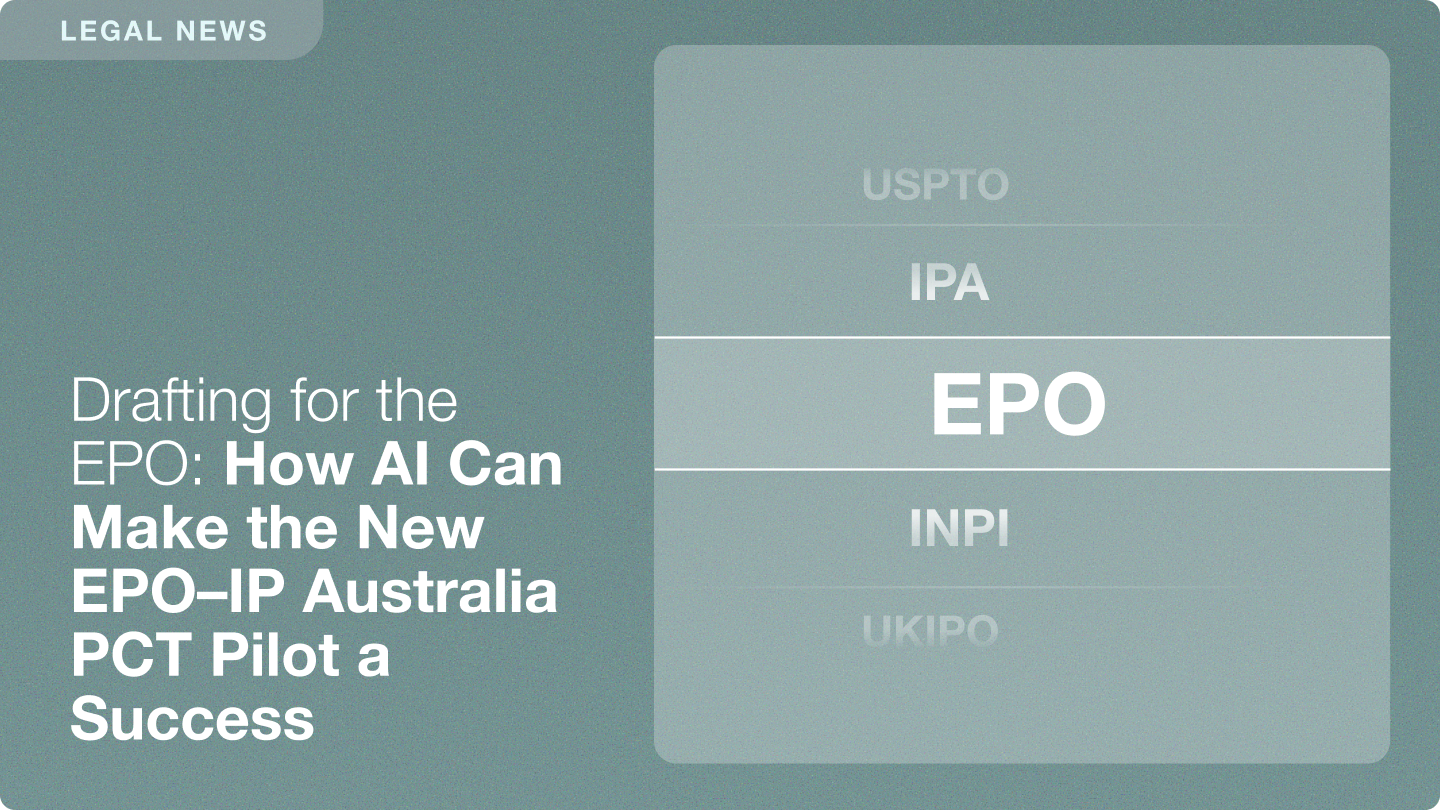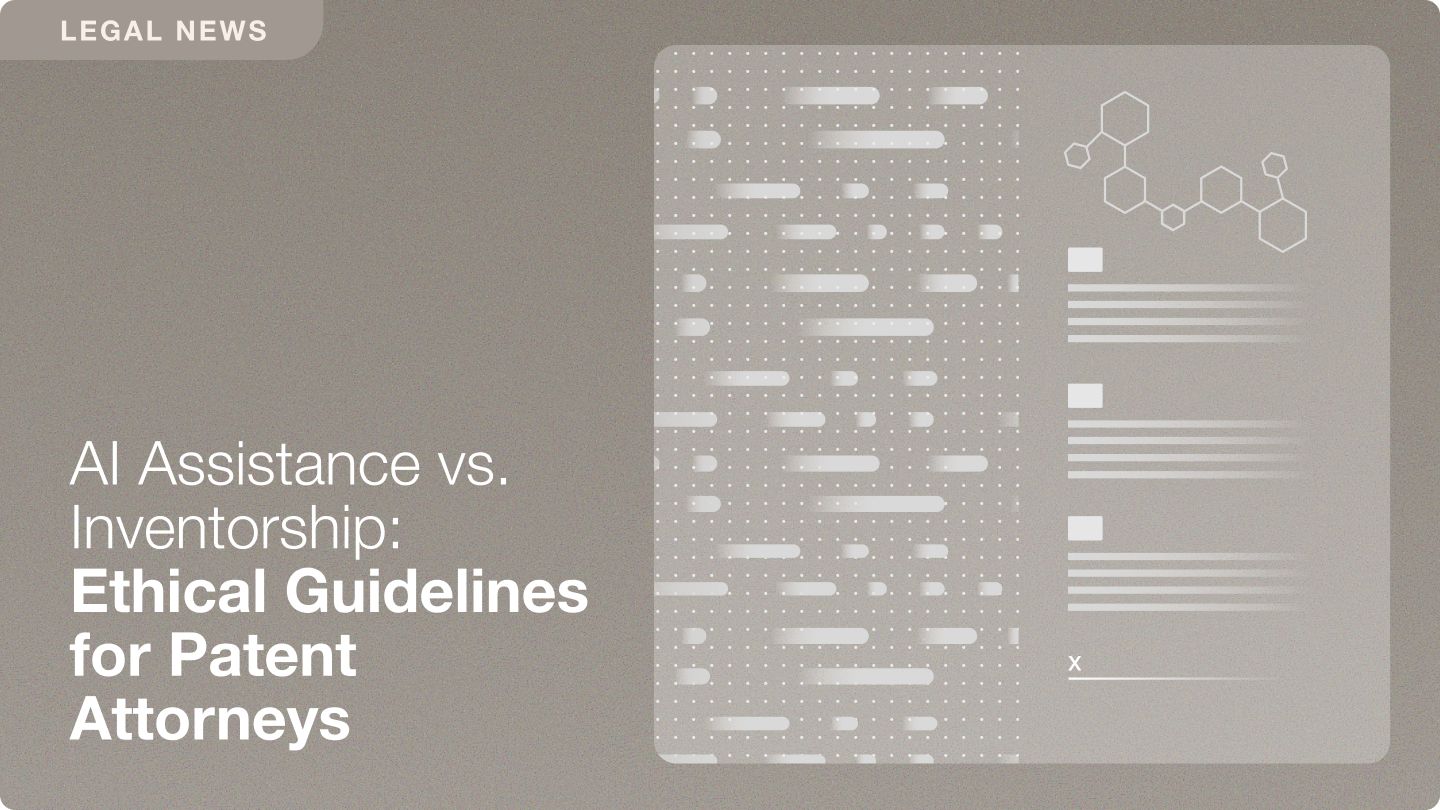5 Benefits of Integrating AI in Your IP Practice
The field of intellectual property (IP) is constantly evolving, as businesses and innovators look for more efficient ways to manage and protect their ideas. As IP portfolios grow, the traditional methods of managing patents, trademarks, and copyrights can become increasingly time-consuming, resource-heavy, and prone to error. To keep up with the fast pace of innovation, IP professionals are now turning to artificial intelligence (AI) to streamline processes and deliver better outcomes.
Key AI Technologies Shaping Intellectual Property Practices
AI is more than just a buzzword in the world of intellectual property—it’s a transformative technology that is reshaping how IP professionals work. Here are some of the most significant AI IP tools and technologies that are shaping the future of the industry:
Natural Language Processing (NLP)
Natural Language Processing (NLP) is a branch of AI that focuses on the interaction between computers and human language. In the context of IP, NLP allows AI systems to process and understand large volumes of text data quickly. This is particularly useful for conducting prior art searches, reviewing prior art, and reviewing Office actions, where vast numbers of patents, technical papers, and other relevant documents need to be examined. By using NLP, AI patent tools can analyze these documents, identify key similarities or important information, and detect potential errors.
For example, NLP can assist in evaluating whether a new invention is patentable by comparing the description against millions of existing patents and publications in various languages. This not only speeds up the process but also increases the accuracy of the analysis.
Machine Learning Algorithms
Machine learning, another key AI technology, involves training algorithms to recognize patterns and make predictions based on historical data. In IP practices, machine learning can be applied to analyze vast amounts of data to detect trends, assess the likelihood of patent approval, or even predict the outcomes of IP litigation cases. AI systems can learn from the success or failure of past cases to help IP professionals make better decisions going forward.
Machine learning algorithms also assist in the classification of intellectual property, predict examination trends, and anticipate problematic issues before they exist. As new patents are filed, AI can automatically classify them into appropriate categories and flag and correct issues, reducing manual workload and ensuring consistency across filings.
Automated IP Management
AI tools are also being used to streamline the management of intellectual property portfolios. Many firms and in-house legal departments are leveraging AI to track the lifecycle of their patents, monitor deadlines, and manage renewals. Automated tools can send alerts about upcoming deadlines, provide updates on legal statuses, and ensure that nothing falls through the cracks.
Top Benefits of Integrating AI in Your IP Practice
The adoption of AI in intellectual property practices offers numerous advantages that can transform the way law firms and corporate legal departments manage their IP portfolios. Below are five key benefits of integrating AI in your IP practice:
1. Increased Efficiency and Speed
Time is a critical resource in the IP industry, and AI IP tools allow professionals to complete tasks far more efficiently. AI systems can process large volumes of information in a fraction of the time it would take a human. For example, conducting a prior art search or assessing the patent landscape for an entire industry, which might take days or even weeks, can now be completed within hours or minutes.
By automating these repetitive and time-consuming tasks, AI frees up IP professionals to focus on more strategic activities, such as advising clients on the best ways to protect their innovations and planning for future filings.
2. Improved Accuracy and Reduced Human Error
Humans are prone to error, particularly when dealing with complex datasets or repetitive tasks like scanning documents and legal filings. AI systems, however, can analyze large sets of data without tiring or losing focus. AI patent tools can improve the accuracy of IP analysis by quickly identifying conflicts, similarities, and gaps in patent filings.
This increased accuracy translates into higher-quality patent filings, fewer errors in legal documents, and a more thorough understanding of the IP landscape. In turn, this reduces the likelihood of missed opportunities or inadvertent infringements, which could lead to costly legal battles.
3. Cost Savings for IP Firms and Clients
While implementing AI technologies in your IP practice may require an initial investment, the long-term cost savings can be significant. By automating labor-intensive tasks, firms can reduce the number of hours required for certain projects, thereby lowering costs.
For example, AI tools can drastically cut down the time spent on tasks like document review, prior art searches, or drafting responses to office actions. This allows firms to offer more competitive pricing to clients while improving overall profitability.
Moreover, with reduced human error and faster results, firms can avoid costly mistakes and missed opportunities, further enhancing the value delivered to clients.
4. Enhanced Patent Strategy and Portfolio Management
The ability of AI systems to analyze large datasets and identify patterns is invaluable when developing patent strategies. AI patent tools can assess the patent landscape, analyze competitors' IP filings, and help IP professionals identify potential gaps in the market that could be leveraged.
This data-driven approach ensures that firms are not only reactive to competitors' moves but can also adopt proactive strategies to safeguard and expand their IP portfolios. By identifying areas of potential risk or opportunity, AI helps IP professionals build more robust portfolios.
5. Improved Competitive Intelligence
In today’s highly competitive business environment, staying informed about competitors’ activities is essential. AI tools can track competitors’ IP filings, patent litigation, and licensing activities, providing IP professionals with valuable insights. These tools can monitor global databases and alert you to new filings or changes that could impact your clients' portfolios.
With AI-driven competitive intelligence, firms can respond faster to competitors’ patent filings or litigation and adjust their strategies accordingly. This level of real-time awareness provides a significant strategic advantage.
Challenges and Considerations When Implementing AI in IP
While the benefits of integrating AI into your IP practice are substantial, there are some challenges and considerations to keep in mind. It’s important to approach AI implementation with a clear understanding of potential hurdles and how to address them.
1. Data Privacy and Security
One of the primary concerns when using AI in IP management is ensuring that sensitive data remains secure. AI-driven tools often require access to confidential legal documents and proprietary information, which raises concerns about data privacy and the potential for breaches. IP professionals must ensure that any AI systems they use comply with relevant data privacy laws and employ robust security measures.
2. Initial Costs and Training
Implementing AI technologies can require an upfront investment, not only in acquiring the tools but also in training staff to use them effectively. While these costs are often offset by long-term savings, firms should be prepared for a learning curve. Proper training is essential to ensure that your team can maximize the potential of AI tools and avoid misusing or underutilizing them.
3. Over-reliance on AI
While AI can dramatically improve efficiency and accuracy, it’s important not to become overly reliant on these tools. AI systems are powerful but not infallible, and human judgment is still necessary, particularly in interpreting complex legal nuances or making strategic decisions. A balanced approach that combines AI with human expertise is key to achieving the best results.
4. Regulatory and Ethical Concerns
As AI continues to transform the legal field, regulatory bodies are starting to pay closer attention to its use. It’s crucial that any AI tools used in IP practices comply with current regulations, and that firms stay up-to-date with any new laws that may affect the use of AI in legal processes. Ethical concerns, such as the potential for bias in AI algorithms, also need to be carefully considered.
Conclusion
The integration of AI in intellectual property practices is quickly becoming a game-changer. AI-driven tools offer numerous benefits, from increased efficiency and accuracy to cost savings and enhanced strategic insights. By automating repetitive tasks, improving competitive intelligence, and offering data-driven strategies, AI allows IP professionals to deliver more value to their clients while navigating the increasingly complex world of IP law.
However, as with any new technology, it’s important to be mindful of the challenges that come with implementing AI. By addressing data privacy, ensuring proper training, and maintaining a balanced approach, IP professionals can fully unlock the potential of AI in their practice.
Embracing AI now not only sets firms and in-house teams up for success in the present but positions them to remain competitive in the future.
AI for patents.
Be 50%+ more productive. Join thousands of legal professionals around the World using Solve’s Patent Copilot™ for drafting, prosecution, invention harvesting, and more.



.png)
.png)
